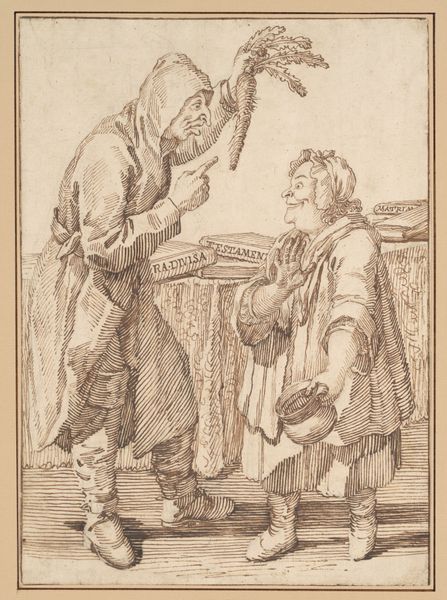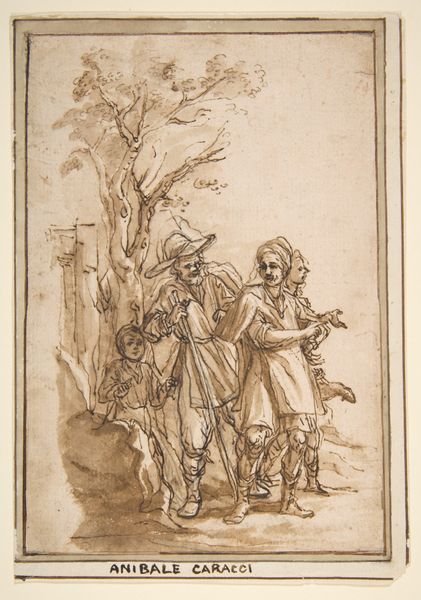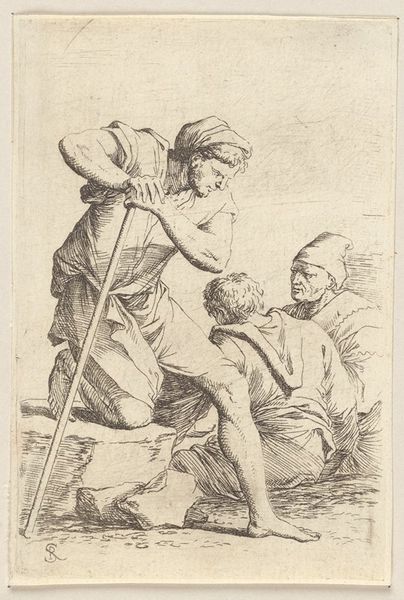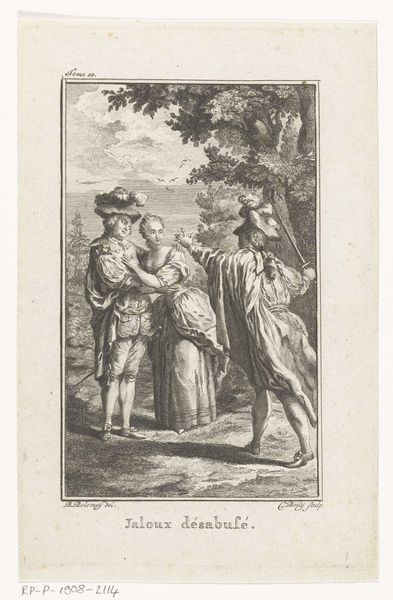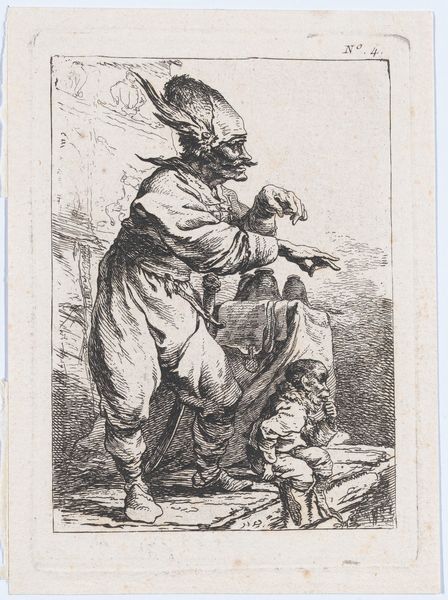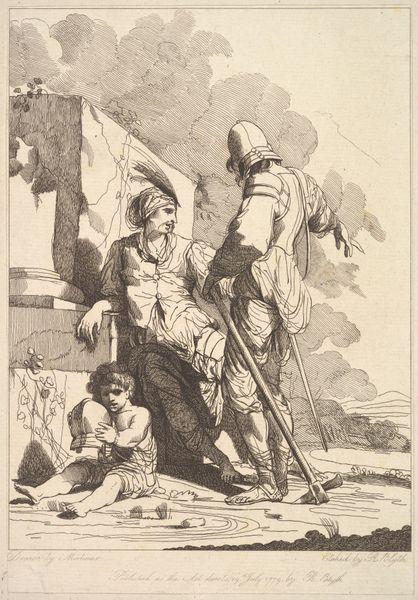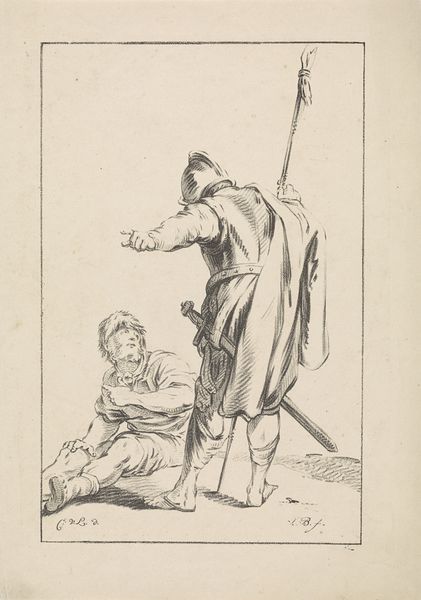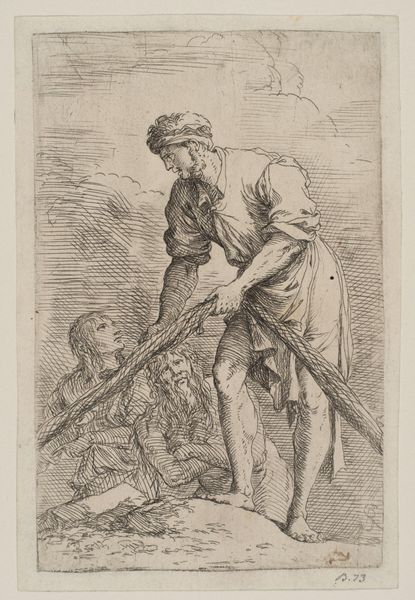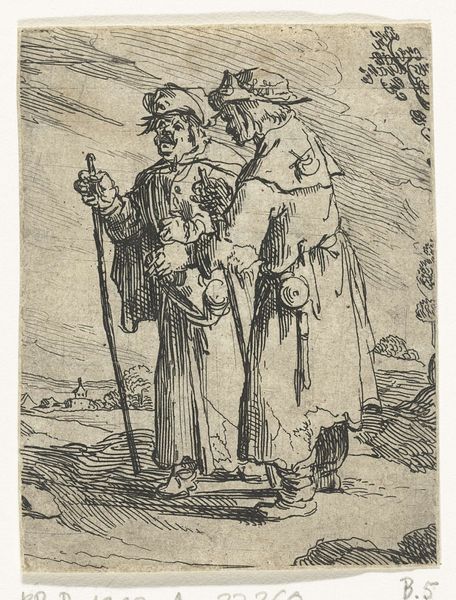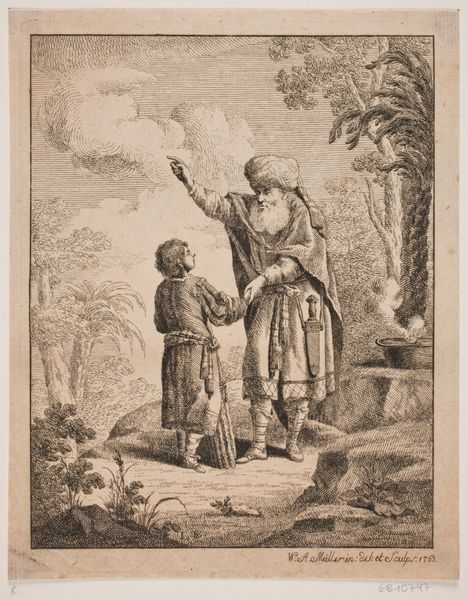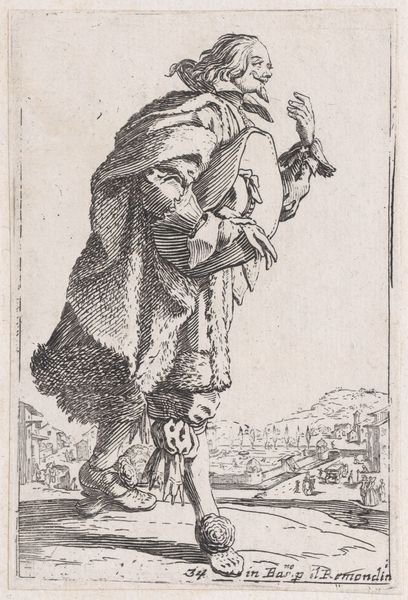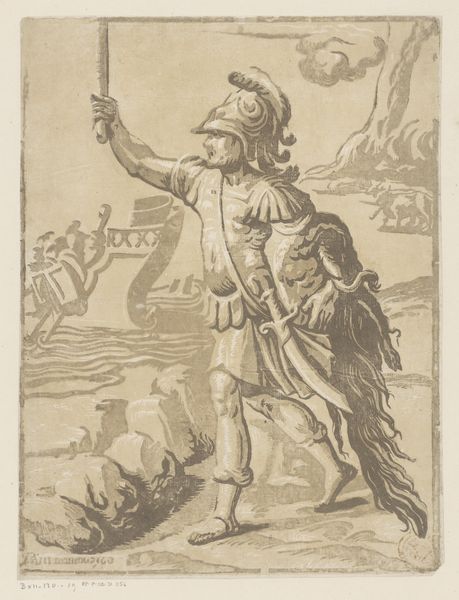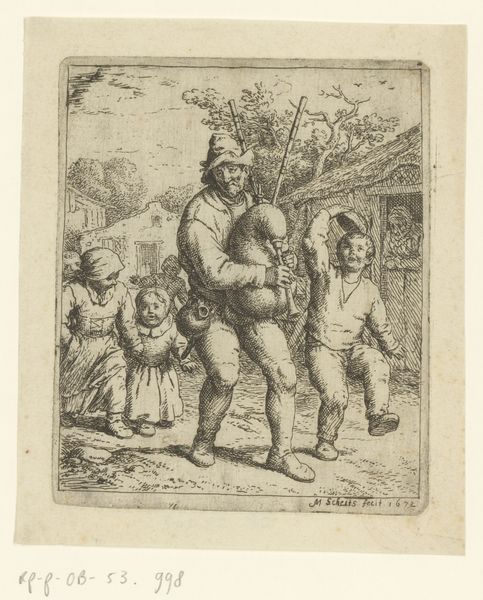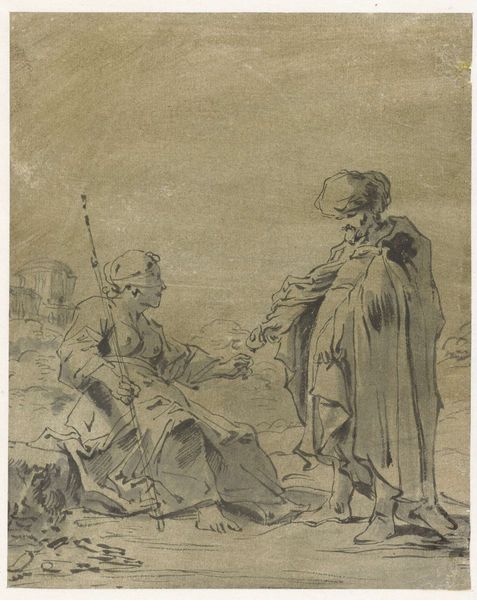
drawing, print, ink, pen
#
drawing
#
narrative-art
#
ink painting
# print
#
landscape
#
classical-realism
#
charcoal drawing
#
figuration
#
charcoal art
#
ink
#
pen
#
history-painting
#
academic-art
Dimensions: 6 9/16 x 3 7/8 in. (16.7 x 9.9 cm)
Copyright: Public Domain
Curator: Immediately, I’m struck by the starkness of the rendering; there is something almost theatrical in its pen, ink, and wash. Editor: Indeed. This is a 17th-century drawing entitled “Belisarius,” currently held at The Metropolitan Museum of Art. It presents the tale of Belisarius, a renowned general of the Byzantine Empire who, falsely accused of treason by Emperor Justinian, was punished by having his eyes gouged out and being reduced to begging for a living. Curator: That narrative context drastically shifts my perception. Suddenly, the stooped figure guided by the boy carries an enormous weight—betrayal, injustice, and the precarity of power. What appears as mere visual starkness reveals itself as a symbolic deprivation of light. Editor: Exactly. The piece offers a critical perspective on power dynamics. Consider the historical tendency to villainize successful figures, particularly in times of political instability. Belisarius’s downfall speaks to the vulnerability of even the most celebrated heroes to the whims of authority. Curator: The rendering underscores the stark contrast between Belisarius's former glory and his present degradation. The delicate ink wash, though subtle, evokes an environment of decay, emphasizing his reduced stature. Editor: Note, too, the relationship between the figures. The youthful guide can also be interpreted as symbolic, showing intergenerational impact as a result of abuse of power: while Belisarius suffers directly, his fall creates an indirect burden to the next generation, and by extension future ones. Curator: It is also remarkable how the artist conveyed so much emotional weight, rendering, with such an austere method, the themes of justice and the transient nature of fame. It stands as a bleakly poignant meditation on social structures and individual agency. Editor: Yes. Reflecting on its formal qualities alongside its narrative and historical underpinnings, one finds in this Belisarius an enduring critique against corruption and a reminder of society's ethical responsibilities.
Comments
No comments
Be the first to comment and join the conversation on the ultimate creative platform.
